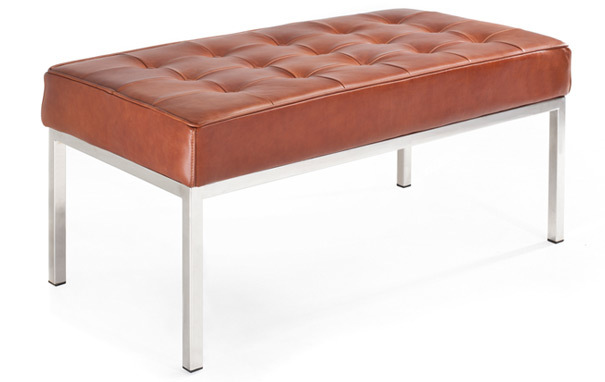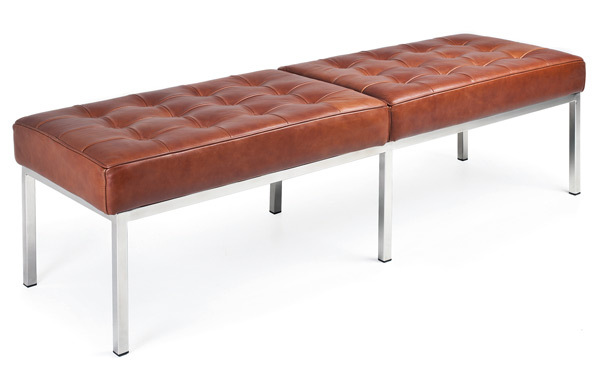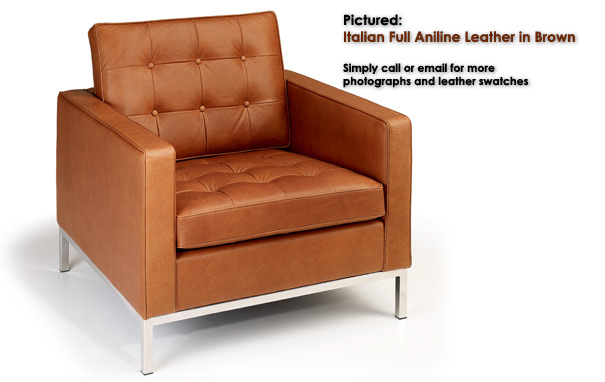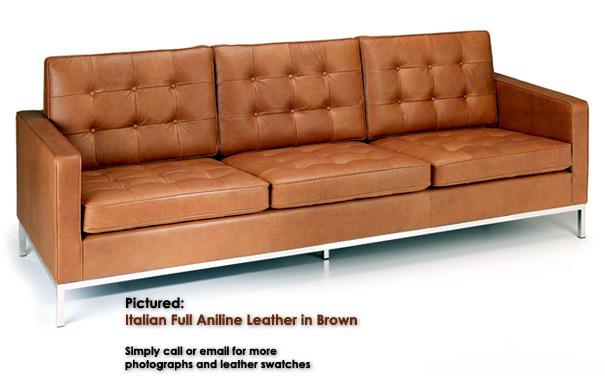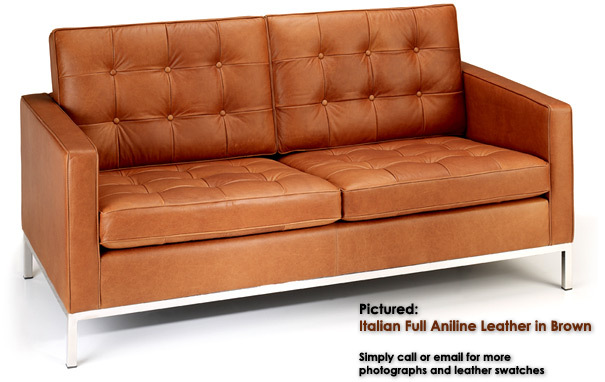Florence Knoll
Born May 24th, 1917
Trained as an architect and designer, Knoll created practical, yet beautiful furniture and interiors that transformed the way living and work spaces are now perceived. Knoll believed in total, holistic design, and considered all aspects of a space when creating interiors: architecture, interior design and furniture design.
Her ‘total’ approach led Knoll to create clear, uncluttered corporate spaces in the 1950s that revolutionised the way workplaces were arranged. To these spaces she added functional, minimalist furniture, such as the Florence Knoll Sofa, which combined usability, space-saving functionality, comfort and style.
Knoll’s design genius was spotted early in life, when as an attendee of Kingswood School – part of the famous Cranbrook Academy of Art – she became the protégé of school president and Finnish Architect, Eliel Saarinen. Under his tutelage, Florence learned the holistic approach to design that would become the backbone of her space and furniture creations.
After working briefly with leaders of the Bauhaus movement, Walter Gropius, Marcel Breuer and Wallace K. Harrison, Florence met furniture manufacturer, Hans Knoll, in 1943 and persuaded him to change the way he created furniture – introducing interior design to his operations. Within three years, Florence had founded the now world-famous Knoll Planning Unit and become Hans Knoll’s wife and full business partner.
When Hans Knoll died in 1955, Florence went on to run the company – an unprecedented move for a woman in the 1950s. Her ability to spot talent meant that designers such as Eero Saarinen created key furniture pieces for the company under her leadership.
Knoll is also credited with bringing exceptionally high standards to her furniture designs, and is thought to have boosted furniture industry standards as a whole. Her fastidious attention to detail earned her a reputation for perfectionism: a quality evident in her meticulously finished Florence Knoll Sofa, and other furniture creations.
Knoll’s principles are still used today, and for her exceptional design and architectural work she won the National Medal of Arts in 2002, bestowed by the National Endowment for the Arts.

